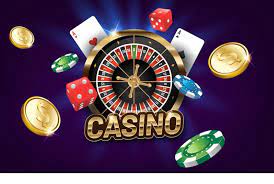Casinos have long been a central part of entertainment, attracting millions of visitors every year with the promise of excitement, thrill, and the chance to win big. Whether you’re in Las Vegas, Monte Carlo, or a local pucuk138 near you, these establishments continue to offer an array of games and experiences that go far beyond just gambling. But what makes casinos so alluring? To answer that, we need to explore their origins, evolution, and the role they play in modern society.
The Origins of Casinos
The word “casino” comes from the Italian word casa, meaning house. Initially, it referred to small clubs or gatherings that were primarily social spaces. These early casinos were not always about gambling—music, dancing, and other forms of entertainment were often at the forefront.
The first real casino, however, is credited to the Ridotto in Venice, Italy, in 1638. This government-controlled facility was established to provide an organized place for people to gamble, with the goal of curbing illegal gambling activities. As Europe moved into the 18th and 19th centuries, casinos began to flourish in cities like Paris, Baden-Baden, and Monte Carlo, where royalty and the elite indulged in high-stakes games like baccarat and roulette.
The Rise of Casinos in the Modern Era
The allure of casinos became more widespread in the 20th century, particularly in the United States. Las Vegas, which was initially a small desert town, transformed into the world’s gambling mecca after World War II. The introduction of glamorous resorts and high-profile entertainers brought a new level of excitement and prestige to casinos. At the same time, legislation around gambling was becoming more relaxed in various U.S. states, allowing casinos to open legally and attract tourists from across the globe.
As gambling spread globally, other cities like Macau, Singapore, and Atlantic City also emerged as major casino hubs. The development of online casinos in the 1990s was another game-changer, bringing gambling to people’s fingertips and allowing the industry to expand beyond physical venues.
The Casino Experience: A Blend of Chance, Skill, and Entertainment
What draws people to casinos? It’s not just the chance to win money (though that’s certainly a significant factor). The casino experience is immersive, offering a mix of sensory stimulation—bright lights, sounds of spinning wheels, and the clinking of chips. It’s also a place for socialization, with people coming together from all walks of life to try their luck.
The games themselves range from simple, luck-based games like slot machines and roulette to more strategic ones like poker and blackjack, where skill can influence outcomes. Many players enjoy the blend of uncertainty and strategy, the ebb and flow of wins and losses. But it’s not only about gambling. Modern casinos often feature luxury accommodations, world-class dining, live performances, spas, and shopping, turning the casino into a multifaceted entertainment destination.
Casinos and Their Impact on the Economy
Casinos play a significant role in local and national economies. They generate billions of dollars annually in revenue from both gaming and non-gaming services. This economic contribution supports jobs in a variety of industries, including hospitality, entertainment, and construction. In Las Vegas, for instance, the casino industry employs hundreds of thousands of people, from dealers to show performers to hotel staff.
Governments also benefit from the casino industry through taxes and licensing fees. This revenue is often allocated to infrastructure projects, education, and public services. In some regions, casinos are seen as key drivers of economic development, especially in areas that are heavily dependent on tourism.
However, the rise of casinos has also led to concerns about gambling addiction, crime, and the social costs associated with high-stakes gaming. As a result, there are ongoing debates about the regulation and oversight of casinos, ensuring that they operate ethically and provide support for individuals struggling with gambling addiction.
The Future of Casinos: Innovation and Technology
As we look to the future, the casino industry is undergoing significant transformations, largely driven by advances in technology. Online casinos continue to grow in popularity, offering players the chance to gamble from anywhere at any time. Virtual reality (VR) casinos are starting to make waves, providing an even more immersive experience that mirrors the sights and sounds of a physical casino while offering the convenience of online play.
Mobile gaming is another key area of growth, as smartphones and tablets allow players to enjoy their favorite games on the go. This shift has made gambling more accessible than ever before, as players don’t have to visit a physical casino to take part in the action.
Another major trend is the integration of cryptocurrency into the casino world. Bitcoin and other digital currencies are now accepted at many online casinos, enabling players to wager anonymously and securely. This is part of a broader push for innovation in the gaming sector, as casinos adapt to the changing technological landscape.
Conclusion
Casinos are much more than just places to gamble—they are complex, multifaceted entertainment hubs that have evolved over centuries. From their early beginnings in Venice to the modern mega-resorts and online platforms of today, casinos have always been about excitement, risk, and reward. As technology continues to shape the way we play and experience casinos, it’s clear that this industry will remain a key player in the world of entertainment for years to come. Whether in person or online, the thrill of the game is sure to endure.



